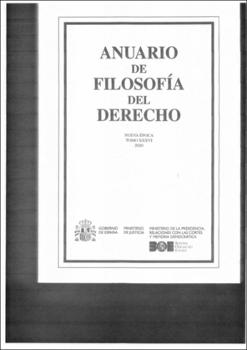Los precursores de la concepción kantiana de la paz
Author
Pérez Brito, Raquel Lucía
Date
2020Abstract
La persistencia de los conflictos bélicos en el siglo XXI supondría el fracaso
de la «teoría de la razón práctica» de Kant, en la que sostuvo que «no
debía haber guerra». No solo no se han cumplido sus previsiones, sino que
hemos involucionado hacia nuevos tipos de guerras. Pero, aun así, en medio
del pesimismo generalizado de la capacidad humana para controlar los conflictos,
y parafraseando a Kant, creemos en la «insociable sociabilidad del
hombre». Esta permitirá que, a través de la «providencia», sea hoy más viable
llegar a esa paz anhelada si lo comparamos con todos los demás autores
que, a lo largo de los siglos, han reflexionado sobre esta posibilidad. Este
trabajo pretende analizar la evolución del concepto de paz en los predecesores
de Kant y reflejar los aspectos realmente novedosos que introdujo este en
su obra, así como sus posibles fallos. The persistence of military conflicts in the XXI century would mean the
failure of Kant's «theory of practica! reason», in which he maintained that
«there should be no wars». Not only have his forecasts failed to come true, but also, we have regressed toward new types of wars. And yet, in the midst of
the widespread pessimism about the human capacity to control conflicts and
paraphrasing Kant, we believe in the «unsociable sociability of man». This
quality, through «providence», will make achieving that desired peace more
feasible for us that for any of the authors who throughout the centuries have
reflected on this possibility. This work aims to analyze the evolution of the
concept of peace in Kant 's predecessors and reflect the truly novel aspects
that Kant introduced in his work. as well as any possible flaws.





